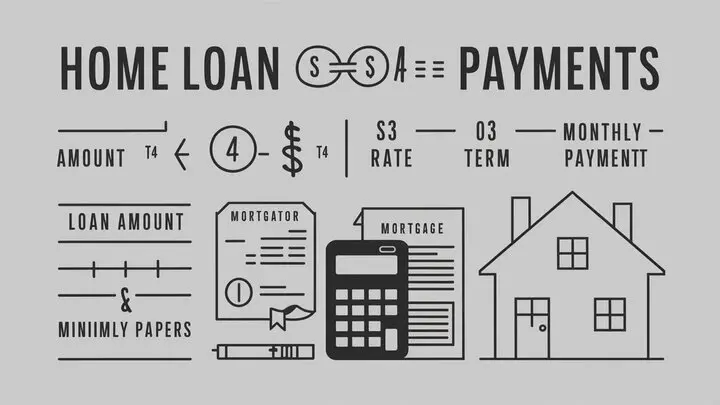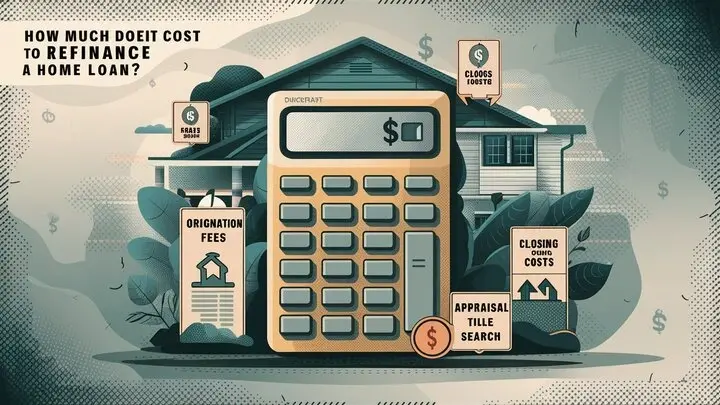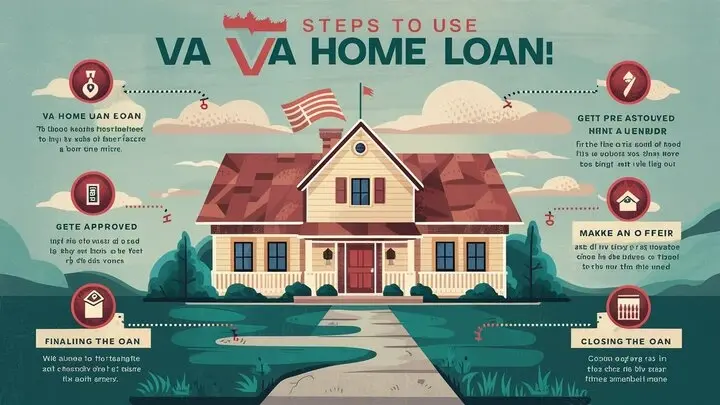-
Posted on: 23 Aug 2024

-
Supposing a home loan enables one to assume the mortgage on a particular property without necessarily applying for a new home loan. This can increase the probability of homeownership and therefore ease the process of purchasing a home in some situations. If you need to own a house but do not wish to go through the process of applying and getting a loan to purchase the house, assuming the seller’s mortgage may be viable for you. Below are the basics of home loan assumption and some useful tips that might help you.
What is the Home Loan Assumption
A home loan assumption can be defined as the process by which a buyer can substitute himself, in the payment of the mortgage on a particular home instead of having to seek a new loan. The former owner conveys the deed of the house together with the remaining balance on the mortgage. The buyer then pays off the balance of the loan in installments directly to the seller on the buyer’s credit. The conditions of the loan, including the interest rate, payment plan, and the date by which the loan needs to be paid off, do not change.
How it Works
Thus, for a loan assumption to occur, the buyer needs to seek permission from the mortgage lender. This usually requires a loan assumption package and proof that the borrower is capable of meeting the monthly payment. The precise provisions regarding eligibility and document production vary depending on the terms of the loan and the policies of the lending company.
It is usually necessary to pass a credit check and a debt-to-income ratio to be able to qualify for one. Banks and other credit providers do not wish to take high risks hence they will ensure the borrower is capable of handling the remaining balance. If approved you would enter into an assumption agreement by which you would agree to assume legal responsibility for the mortgage until the loan is paid in full.
Advantages of taking over a Home Loan
Assuming an existing home loan offers several potential advantages:
Avoid loan application process – Whenever possible, avoid having to go through a new loan application process as it could be time-consuming and cumbersome. It saves you on documentation, taking more time to close, and of course the high chances of rejection.
Low interest rates – if the existing rates are higher than the home’s current mortgage rates, the assumption means lower monthly installments. This increases affordability.
Risk assumption – Sellers may prefer a buyer who is willing to take up their mortgage obligations. This can prove to be a great advantage especially in competitive industries and markets.
Increased approval – The loan assumptions may be easier to qualify for than the new loan products.
No taxes involved – As to some loan types such as VA loans, assumption does not entail any state or federal tax implications.
Factors to Consider When Taking Over
While assumptions offer opportunities in the right situation, they do come with risks and limitations to consider upfront:
You remain bound to the original term – Take the loan only if you are in a position to make payments every month throughout the remaining term of the loan. There may be limited access to refinance in the future.
Early payment penalty - Check if there are prepayment penalties or other conditions that restrict you to repay the loan earlier than planned. Include these costs in your estimates for what you can afford for a home.
Getting approved still demands some basics – Lenders will check your credit standing, your income, and other aspects of your personal finance. They do differ but, in most cases, they are not less demanding than any regular acquisition.
Loan type has a bearing - The eligibility criteria, document requirements, and the allowance of assumptions vary with each conventional, FHA, VA, and many others.
Some sense of cooperation is required from the side of the property seller for the assumption transaction to go through. It is also possible that an original borrower will have to stay involved as per the instructions given by the lender.
Down payments – Even when you are using cash to purchase a home, you will need money at the closing to pay for customary ownership transfer costs including title fees, recording fees, among others. Consider these in your budget.
In general, taking over loans enables buyers to avoid the regular procedure of obtaining credit. However, they do not eliminate all the usual barriers to home purchasing. Do not overemphasize the capacity to qualify and be realistic about the actual savings achievable after all the terms and costs have been considered.
What You Need To Assume A Mortgage
If you decide moving forward with an assumption makes good financial sense, here are the typical items you should prepare:
Loan Assumption Application Documenting Current Finances
-
Income Verification
-
Bank Statements
-
Investment Account Balances
-
Credit Report
-
Debt Schedule
- Budget Analysis
Sales Contract Contingencies Details of the Initial Credit Terms
-
Interest Rate
-
Principal Balance
-
Monthly Payment
-
Payment Due Dates
Loan Type and Program Details
-
Loan Maturity Date Prepayment Penalties or Restrictions:
Disclosures and Assumption Agreements Processing Fees for Lender Earnest Money Deposit
-
Down Payment
-
Closing Costs
- Prepaids and Reserves
First of all, gather information about the current mortgage from the seller or the lender. This will enable you to determine the extent of loan commitments and conditions which you would be assuming. Go to shop lenders to find one who would consider the assumption based on their standard procedures. Gather necessary income, credit, and asset documents to improve your chances of approval.
Many assumption programs permit some degree of flexibility on items like closing date provisions or seller contributions and therefore, you ought to talk to your real estate agent regarding possible choices on the same. It is advisable to incorporate contingencies in the home purchase offer to find a suitable workable financing plan in case the assumption is not possible.
How to Raise Your Odds
If your finances are less than ideal, consider steps to improve the likelihood a lender approves your assumption application: If your finances are less than ideal, consider steps to improve the likelihood a lender approves your assumption application:
Shop multiple lenders - The qualification is different with different lenders. It is advisable to search widely to obtain one that is willing to work with your situation.
Bring a co-assumption – Getting a co-buyer with a better credit score or income may help to improve the risk level enough to allow assumption.
Seek help from the seller – If necessary, discuss with the seller the possibility of implementing temporary escrows to complement your capability of handling payments.
Clear credits – Reducing credit balances on cards or other liabilities increases payment-to-income ratios
Larger down payments - A larger amount down assures capacity and willingness to perform the loan repayment obligations.
Build in assumptions flexibility - Do not get trapped by a strict plan because of over-promising if the assumption approval takes a long time.
Similar to traditional financing, there is also flexibility regarding taking over existing mortgages depending on the specific lender. Being thorough while shopping and presenting a comprehensive, neatly packaged dossier for their consideration is crucial.
The Bottom Line
Some home loan customers get an opportunity to avoid a rigorous lending pre-approval process on the back of an existing home loan. This can save time and money where applicable, depending on the circumstances. However, restrictive eligibility terms, lack of seller cooperation, or shifts in markets could make such assumptions a nightmare. Knowing all the expenses, dangers, and options beforehand is much more sensible.
Improve your credit score now—call (888) 803-7889 for a free consultation!
-










